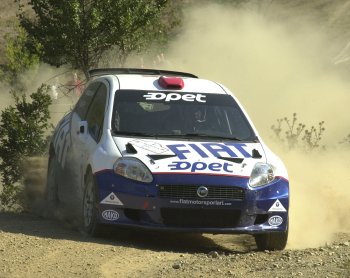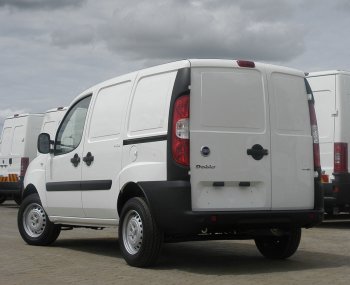|
Fiat Auto's
Turkish based joint venture company Tofaş, which has recently
grown into one of their biggest global production
operations, has been handed an additional important new duty,
which reconfirms its strategic place in Fiat's forward planning
and development: Tofaş has just been given overall
responsibility for the markets in Africa, the Middle
East and Eastern Europe.
This is a major
step forward for Tofaş (Turk Otomobil Fabrikasi) which is
jointly owned by Fiat Auto and the leading Turkish national
conglomerate, KoÁ Holdings. 51-year-old Ali Pandır, who was
appointed as CEO of Tofaş last November to replace Alfredo
Altavilla who took over as CEO of Fiat Powertrain
Technologies (FPT) announced the new development, saying:
"Fiat has divided its allocated regions' world geography
into three. Tofaş will be responsible for the markets in
Northern Africa, the Middle East and Eastern Europe."
Meanwhile the influential Turkish Daily News
newspaper has reported that during 2007 and 2008 Tofaş plans
to invest a figure of US$1 billion to expand its production
capacity by 122 percent and to boost exports by 90 percent;
a clear signal that the Turkish firm is at the crux of
Fiat's forward planning strategies. Tofaş currently builds the DoblÚ
light commercial van range, and its people-carrying
derivatives, for global export, introducing a facelifted
version last year - which won the prestigious European "Van
of the Year" honour; while last week a new "Malibu"
badged leisure market targeted version of the new van arrived on
the European markets.
Turkey is rapidly becoming a favoured manufacturing base for
the world's biggest carmakers. Earlier this month Renault
announced it will start building the latest version of its
B-segment Clio in the country later on this year, and will
invest US$236 million in an increased Research & Development
programme. Toyota and Honda
both have their own subsidiaries in Turkey, with the latter
recently announcing that it will boost production from
30,000 to 100,000 vehicles per year.
|
 |
|
Fiat Auto Turkey is now
running the Fiat Grande Punto Rally in national
competitions; the first arm of the Turinese carmaker
to run the new Super2000 car outside the factory
operation. |
|
|
 |
|
Tofaş currently builds the DoblÚ
van, and its people-carrying
derivatives, for global export, introducing a facelifted
version last year which won the prestigious European
"Van of the Year" honour. |
|
|
While the two Japanese firms
have their own wholly owned operations, Mercedes-Benz,
Renault, Ford, Hyundai and Isuzu, are all present in the
country, and like Fiat, they operate in conjunction with
national joint venture partners. Despite the flood of new
Eastern European car factories over the last decade, Turkey
still has a higher automotive production output than any single
Eastern European state, the automotive industry contributing
US$14 billion annually to the Turkish economy, and is nurtured by the
government who offer incentives while keeping to European
Union standards.
Major upcoming projects for Tofaş include the new C-segment
Fiat Linea sedan which was mostly developed in Turkey, the first
major project for Fiat it has handled by itself, with Turinese
engineering input; and the forthcoming light commercial van, codename "Minicargo",
which was is being realised by Tofaş with PSA Peugeot-CitroŽn as a
major
partner.
Tofaş in fact started life in 1968, the dream of Vehbi KoÁ, and its
first car it built was the Fiat 124, known locally as the
Tofass Murat 124, which left the production lines three
years later. Tofaş also successfully assembled the
Fiat 131, Tipo, Tempra and Uno models, as well as its
own home-developed cars; and today it manufacturers the Fiat Palio, Albea and Marea for both domestic and export applications;
while the
former two models are also exported in CKD form. Tofaş
can count on much experience in selling cars in North Africa, a factor
that has contributed to its newly defined role within Fiat
Auto; its self-developed "bird" named model range has been
exported to the continent for many years, with Egypt being
the primary focus of exports.
|
|
|
|